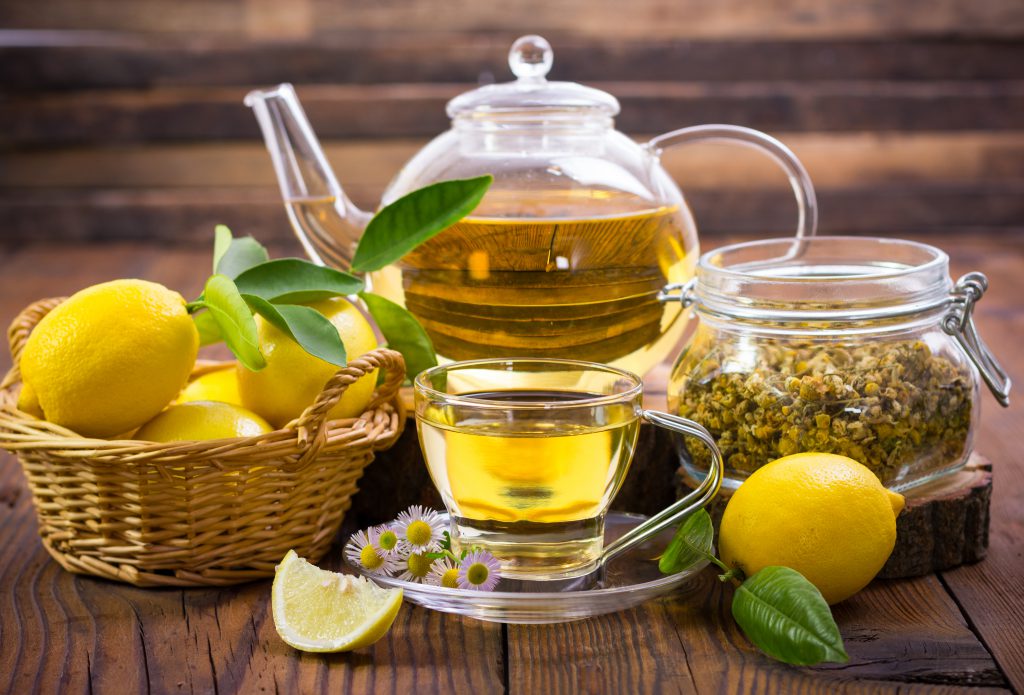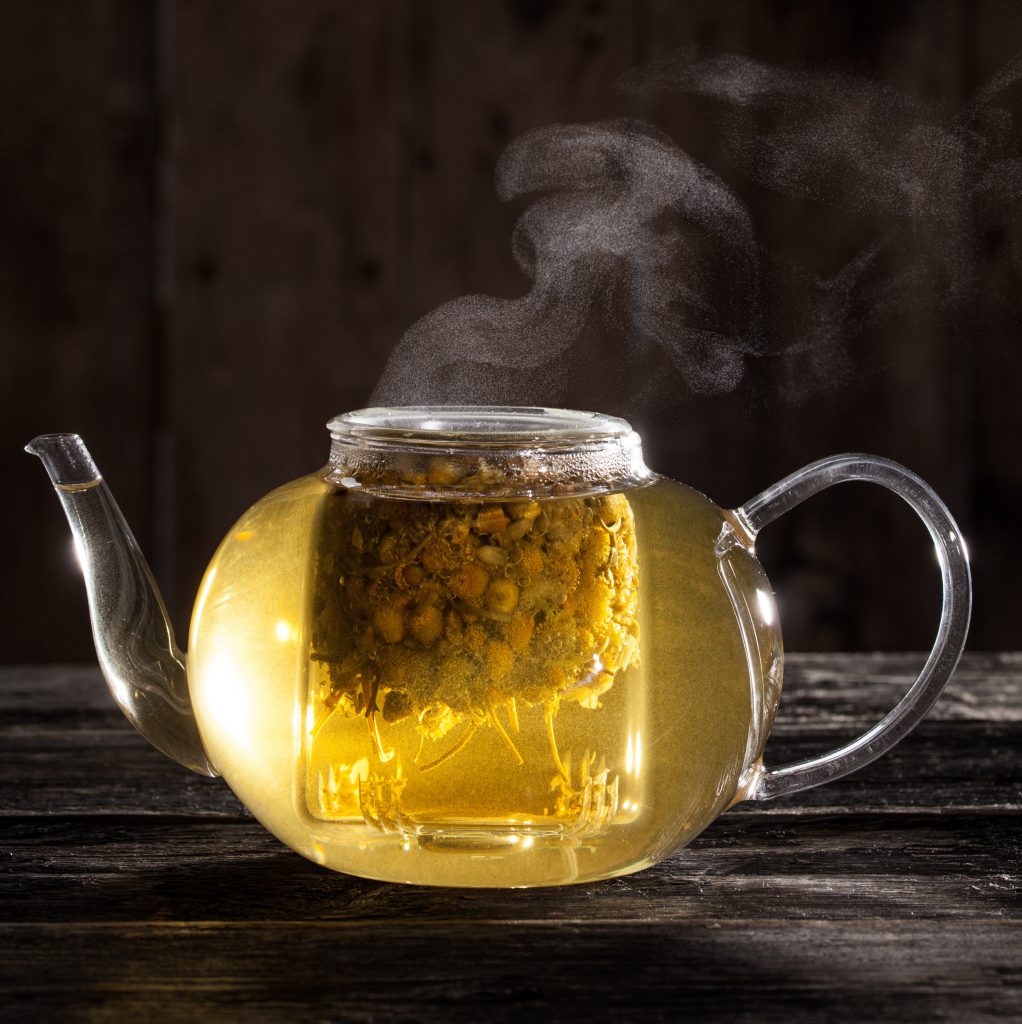5 Scientific Studies about Chamomile
This entry was posted on January 30, 2017.
 General Anxiety Disorder
General Anxiety Disorder
Chamomile has long been thought to have a calming effect on those that drink it. This is one of the reasons that it is a recommended nighttime beverage, as it helps to relax the drinker. A study was done to look further at these relaxation properties, and see if they had a significant effect on individuals suffering from General Anxiety Disorder. General Anxiety Disorder affects roughly 3% of the population, or almost 7 million people (ADAA).
In this study, published in the International Journal of Phytotherapy and Phytopharmacology, individuals were put into a test group and control group. The control group was given a placebo, while the test group was given chamomile extract, over the course of an eight week period. The findings were enlightening. Because GAD has subjective symptoms, patients used the General Anxiety Disorder scale to evaluate their symptoms. The scale is shown here. Basically, individuals rate a number of symptoms on a 0-3 scale. These are in reference to symptom prevalence over the previous two weeks. 0 means not experienced at all, while 3 means experienced daily.
The experimental group in this study saw their GAD score decreased by 8.4. The findings were statistically significant compared to the control group. This was strong evidence that the chamomile extract was effective in reducing the symptoms of General Anxiety Disorder.
Mortality Rates
 In many countries, consumption of chamomile tea is a daily ritual, especially among older adults. In April 2015, a study was published that sought to quantify the benefits of this practice. While the Japanese are renowned for their tea drinking, this study, published in the Oxford Academic, instead focused on Mexican Americans above the age of 65.
In many countries, consumption of chamomile tea is a daily ritual, especially among older adults. In April 2015, a study was published that sought to quantify the benefits of this practice. While the Japanese are renowned for their tea drinking, this study, published in the Oxford Academic, instead focused on Mexican Americans above the age of 65.
The results were very eye-opening. Overall, there was a 29% reduction in mortality among all adults in the study. There was a statistically significant drop in mortality specifically in female subjects. This data is very much in line with other studies done in Japan and Asia that have pointed to extended life for older adult women that drink chamomile regularly.
The study is a great jumping off point for the study of chamomile and its effects, but needs follow up for greater results. This study had thousands of people, which helps strengthen the results. It was done by self-reporting, which meant limited information about quantity and exact type of chamomile tea was available to the researchers. Also, self-reporting studies can have an inherent bias, as people are not always accurate or honest in their reports.
The clinicians involved with the study did find the results to be significant. They indicated that this study provided moderate evidence of a decrease in mortality among the general population, and, in conjunction with previous studies, strengthened the evidence for decreased mortality in women that consume chamomile tea.
Mood and Relaxation
Chamomile is a common relaxant, though, as outlined above, is used predominantly by older adults. This study sought to find out the effects of chamomile tea on young adults. Specifically, college age students between the ages of 18-25. This study was conducted by the Department of Psychology at Northumbria University, and was published in the  September issue of Plant Science Today. They had three different groups: one group that drank chamomile tea, one group that drank peppermint tea, and one group that drank hot water (control group). They then tested these students in a number of areas over an eight week period. They took some quantitative cognition tests, but also some qualitative relaxation and mood surveys.The findings of the study confirmed much of what was already believed about the two different teas. The peppermint tea increased cognition in a statistically significant way over both the chamomile and control group. Meanwhile, the chamomile tea showed significant results on the subjects’ calmness and other positive mood traits.
September issue of Plant Science Today. They had three different groups: one group that drank chamomile tea, one group that drank peppermint tea, and one group that drank hot water (control group). They then tested these students in a number of areas over an eight week period. They took some quantitative cognition tests, but also some qualitative relaxation and mood surveys.The findings of the study confirmed much of what was already believed about the two different teas. The peppermint tea increased cognition in a statistically significant way over both the chamomile and control group. Meanwhile, the chamomile tea showed significant results on the subjects’ calmness and other positive mood traits.
The study set out to conduct an experiment about widely held beliefs for peppermint and chamomile tea. It turns out, the common knowledge on these teas has strong scientific evidence on its side. It does seem that peppermint aids in cognition and that chamomile aids in relaxation and other positive mood traits. This is a great reminder for young adults that drinking tea can be an effective way to help with academic studies, and also anxiety and stress.
Diabetes Help
This study was published by the American Chemical Society in 2008. It again looked to scientifically study commonly held beliefs about chamomile. In this case, it was looking at the way hot water chamomile extract could affect diabetic complications, or help in the prevention of diabetes.
 Diabetes patient measuring glucose level blood test
Diabetes patient measuring glucose level blood testIt is widely known that herbal remedies and teas can have influences on a variety of diseases and disorders. Much of this comes through their reactions with different enzymes, though it is unknown exactly how these interactions occur. This study, performed on mice, looked at chamomile as a whole, but also several chemical compounds found within chamomile. Specifically, they looked at umbelliferone, esculetin, luteolin, and quercetin. They studied each of these compounds separately, but also looked at chamomile extract as a whole.
The results were very encouraging. The extract, esculetin, and quercetin all showed moderate inhibition of sucrose. When put through a sucrose loading test, esculetin was able to fully suppress hyperglycemia after both 15 minutes and 30 minutes. The chamomile extract also helped in suppressing hyperglycemia, but not quite as effectively as the isolated esculetin.
The chamomile extract was shown to be a potent inhibitor against aldose reductase (AL2R). It was found that both the extract and several of its underlying compounds could “significantly inhibit the accumulation of sorbitol in human erythrocytes.
The final prognosis from the study was, as always, that further studies are certainly warranted. They did say that this study provided strong evidence that consuming chamomile tea each day could contribute to the prevention and or progress of certain diabetic complications. This is very encouraging. It shows that the western scientific community is beginning to recognize the incredible power of herbal remedies and herbal teas.
Primary Dysmenorrhea
This study in the Iranian Journal of Obstetrics, Gynecology,
and Infertility tested in the effect of chamomile tea on primary dysmenorrhea. Primary Dysmenorrhea is an extremely prevalent condition found in menopausal women. It involves severe pain in the lower abdomen, which sometimes can spread to the thighs. It can often  be known as cramping, and is experienced by up to 90% of women during menstruation. Luckily, there are already several remedies available to relieve the symptoms of these cramps. Most commonly, women are given non steroidal anti-inflammatory medications. These are usually quite effective, but roughly 1 in 10 women do not respond to these measures. For these women, alternatives are needed.
be known as cramping, and is experienced by up to 90% of women during menstruation. Luckily, there are already several remedies available to relieve the symptoms of these cramps. Most commonly, women are given non steroidal anti-inflammatory medications. These are usually quite effective, but roughly 1 in 10 women do not respond to these measures. For these women, alternatives are needed.
This study looked to see if chamomile tea could be an effective alternative treatment for primary dysmenorrhea. To do this, 80 women at the university were split into a control group and experimental group. The experimental group was asked to drink two cups of chamomile tea per day the week before their menstruation, and the first five days of their menstruating. This was continued for three months. Individuals then responded to surveys after their first and third menstrual period, evaluating stress, pain, and anxiety.
The results were astounding. Using a summation of means method to compare the control and experimental groups, there was extremely strong evidence that drinking chamomile tea reduces the symptoms of Primary Dysmenorrhea (P<.001). The researchers thus concluded that chamomile tea is an effective therapy in reducing the pains of primary dysmenorrhea and the subsequent psycho-social problems.
This study is a great reminder of the unexpected benefits of chamomile. Cramping is something the vast majority of women deal with during their menstrual cycle, and their is now strong evidence that chamomile tea drunk daily can greatly reduce the pain and anxiety this causes. This is especially important for women that have not found relief with previously accepted methods of pain reduction.

DISCLAIMER: While the studies mentioned above are published scientific studies, US-Wellness does not make any claims as to possible medical benefits of chamomile. These studies are linked to for reference, but consumers should always seek the advice of a licensed medical doctor before undergoing treatment, herbal or medicinal, for any condition. U.S. Wellness does not claim that chamomile tea is a treatment for any illness.


